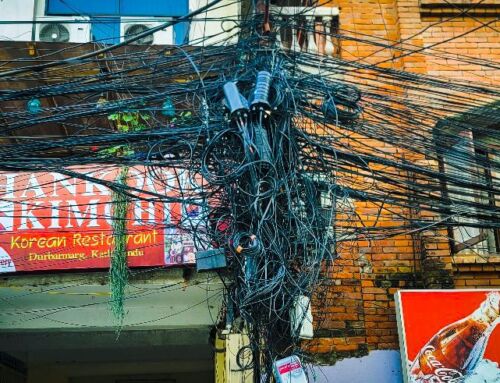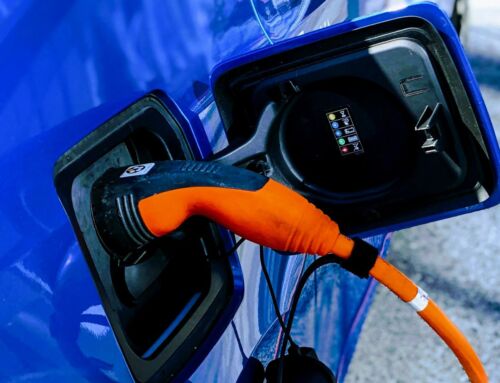View by Topic
Recent Articles
-
Federal Government Finalizes New Efficiency Standards for LightbulbsSaturday, April 13th, 2024
-
2024 IECC is Final After Addressing Preemption IssuesSaturday, April 6th, 2024
-
Settlement Portends Broad Failure in Attempts to Ban Natural GasSaturday, March 30th, 2024
-
SEC Climate Disclosure Rule Stay and Venue Now in the 8th CircuitSaturday, March 23rd, 2024
-
EV Charger Data ApocalypseSaturday, March 16th, 2024
View by Month/Year
“Green Building Law Update” Headlines
Recent Articles & News from
Stuart Kaplow’s blog
at GreenBuildingLawUpdate.com
- Shedding Light on the Future: The Evolution of Lightbulbs in the Wake of New Energy Efficiency Standards April 14, 2024
- 2024 International Energy Conservation Code is Final After Addressing Preemption April 7, 2024
- Settlement Portends Broad Failure in Attempts to Ban Natural Gas March 31, 2024
- SEC Climate Disclosure Rule Stay and Venue Now in the 8th Circuit March 24, 2024
Subscribe to the Green Building Law Update!
Stuart Kaplow brings his expertise and extensive experience to the table with his unique digital publication, "Green Building Law Update". Subscribers receive regular updates to keep them informed about important issues surrounding Environmental Law, Green Building & Real Estate Law, as well as the emerging demand for Environmental Social Governance (ESG).
Get fresh content through the lense of Stuart Kaplow's cutting-edge expertise, innovative commentary and insider perspective. Don't miss another issue! Subscribe below.

Legislature Overrides Veto of Renewable Energy Portfolio Standard Increase
On February 2, 2017, the Maryland Senate and House of Delegates voted to override the veto of an increase the State’s Renewable Energy Portfolio Standard, as enacted in the 2016 Maryland General Assembly session.
Last May, Maryland Governor Lawrence J. Hogan, Jr., vetoed House Bill 1106, that was characterized as a “sunshine tax” to be levied upon every electricity ratepayer in Maryland.
That is, on its face the bill mandates that 25% of all electricity consumption in the state come from renewable energy sources by the year 2020, an increase from the then existing renewable energy mandate of 20% renewable energy by 2022.
Except that nowhere does HB 1106 actually require that 25% of “Maryland’s energy” come from renewable sources. The Renewable Energy Portfolio Standard is a mandate on electricity suppliers (.. think monopoly electric utilities) and the cost of compliance is passed through to ratepayers. In 2015, Maryland ratepayers paid $127 million to comply. Under the increased standard in the bill, electricity suppliers would comply by purchasing a percentage of renewable energy credits proportional to its share of Maryland’s total electricity sales.
The implementation of this law is accomplished through the creation, transfer, and retirement of renewable energy credits (RECs). RECs are a commodity that represents the renewable attributes associated with the production of one megawatt-hour of electricity generated using eligible renewable energy sources.
Maryland electricity suppliers have relied heavily, and will continue to rely more heavily, on out of state generators to acquire the RECs needed for Renewable Energy Portfolio Standard compliance. In fact, in every year since 2011, The Public Service Commission admits that between 70% and 75% of RECs retired for compliance with this law were generated out of state. Maryland has been and now, more than ever, will be far ahead of what the electricity generating marketplace can do.
While the primary objective of the Maryland Renewable Energy Portfolio Standard when enacted into law in 2004 was to foster the development of renewable energy resources in Maryland, this has not happened.
The Governor’s veto had been widely applauded as a pushback against ever increasing legislatively flawed subsidized local renewable energy marketplace portends a national trend.
While on the surface, the aim of HB 1106, increasing the amount of renewable energy in Maryland was laudable, the dramatic increase in dollar costs to Maryland ratepayers for electricity, not to mention the regressive nature of the additional dollars, including burdening the poor that rely on electricity to heat and light their homes, while benefitting out of state investors (many of which institutional investors leverage those dollars invested in facilities in other states that they ‘double dip’ by getting credit in Maryland, and then obtain federal tax incentives), was widely seen as the wrong approach.
And calculatedly, the Maryland Renewable Energy Portfolio Standard does not take into account that more than one third of electricity in the State is generated from nuclear power, the ultimate (but controversial) renewable energy source that produces virtually no greenhouse gas emissions.
Additionally, the Standard is made more expensive when it expressly includes offshore wind (.. so, yes, Maryland ratepayers are subsidizing offshore wind development and later operation).
Twenty years ago Maryland had among the least expensive price of electricity to the ultimate consumer across the residential, commercial and industrial sectors, but before the implementation of HB 1106, at 14.3 cents per Kilowatt hour the average price is now among the highest in the continental U.S. and the very highest among all south Atlantic states.
The veto was Maryland’s effort to strike a balance in energy policy.
The veto override last week, was of a bill passed last year in advance of the Presidential election and resultant national policy shifts including anticipated elimination of President Obama’s Clean Power Plan. The vote was largely along party lines with the Democrat controlled legislature rebuffing the Republican governor. In the Senate, all 32 Democrats voted to override, more than the 29 needed. In the House of Delegates on Tuesday, 88 Democrats voted for the override, more than the 85 needed.
Despite politics, it is clear HB 1106 will do little if anything to foster the development of renewable energy resources within Maryland. What this veto override does signal in this changing environment is the need for a national rebalancing of government energy priorities, and not subsidized on the backs of the poor.









